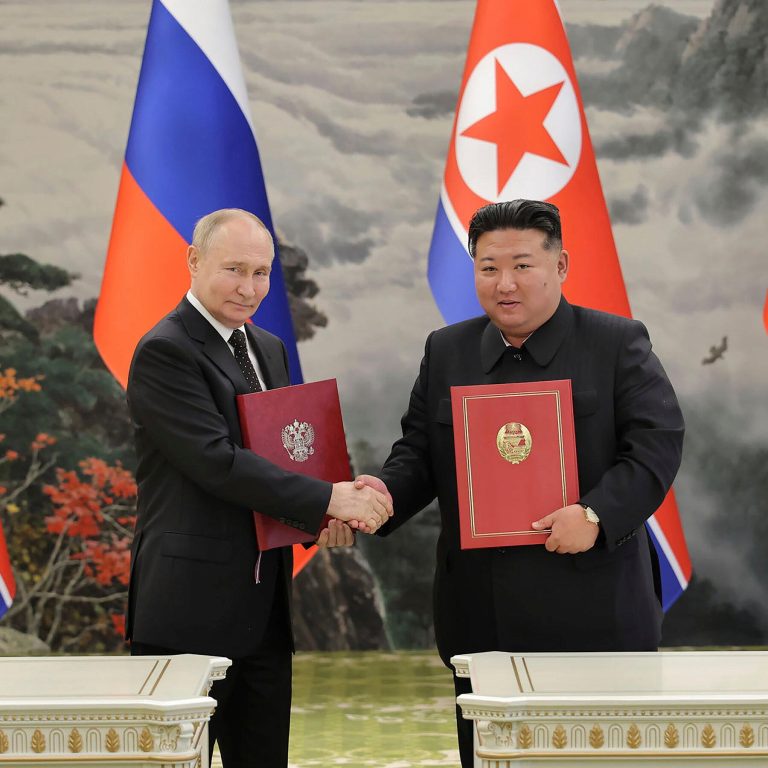North Korea’s already fraught relations with the United States and Europe are entering a fresh period of strain, as Pyongyang signals closer alignment with Russia and presses ahead with its weapons ambitions while Western capitals weigh expanded pressure and limited avenues for dialogue. Officials and analysts say a cluster of developments-from heightened military rhetoric and displays to allegations of arms transfers and cyber activity-has narrowed space for engagement and raised the risks of miscalculation.
At stake are stability on the Korean Peninsula, the credibility of international sanctions, and prospects for humanitarian and consular outreach. The latest turn will test whether deterrence and penalties can be balanced with diplomacy, or whether ties between North Korea and the West drift further toward open confrontation.
Table of Contents
- Backchannel Contacts Falter as Arms Transfers and Cyber Operations Expand
- Humanitarian Exemptions and Clear Sanctions Guidance to Sustain Aid and Food Security
- Launch Military Hotlines Clarify Red Lines and Offer Phased Incentives to Restart Talks
- To Conclude
Backchannel Contacts Falter as Arms Transfers and Cyber Operations Expand
With informal avenues increasingly sidelined, European and U.S. officials say quiet lines once used to de-escalate crises are fraying, even as Pyongyang deepens security barter with Moscow and accelerates digital intrusions that drain hard currency. Intelligence summaries point to expanded arms transfers—artillery shells, rockets and possibly missile components—moving through Far Eastern corridors, while a wave of cyber operations targets banks, crypto exchanges and defense contractors, complicating any prospects for discreet problem-solving. Diplomats warn that without working backchannels, misread signals over weapons testing, tech proliferation and sanctions enforcement could spiral into punitive cycles with fewer off-ramps.
- Humanitarian conduits stall: vaccine and food coordination calls reportedly paused amid new export-control disputes.
- Logistics adapt: mixed cargo consignments and ship-to-ship transfers obscure end users and skirt monitoring.
- Finance under fire: spear‑phishing, supply‑chain compromises and crypto heists replenish state coffers.
- Messaging hardens: public statements replace private clarifications, raising the risk of escalation by press release.
Humanitarian Exemptions and Clear Sanctions Guidance to Sustain Aid and Food Security
Western capitals are moving to insulate humanitarian channels from the latest punitive measures, with diplomats signaling a push for clearer carve-outs so that food, medical supplies, and agricultural inputs reach vulnerable North Koreans without triggering overcompliance by banks and shippers. Officials and aid groups say opaque rules have choked routine transactions, worsening seasonal lean periods and undermining fertilizer and tool deliveries that underpin crop yields. To counter the chilling effect, regulators are drafting granular instructions and standardized permissions designed to keep enforcement sharp while reducing friction for vetted relief operations:
- Standing authorizations and safe harbor: broad, renewable licenses for NGOs and UN agencies, plus legal protections for financial institutions processing compliant relief payments.
- Protected payment corridors: designated “white channel” banks and pre-cleared correspondent routes to handle low-risk transfers with enhanced transparency.
- Clear product definitions: explicit lists covering seeds, fertilizers, irrigation kits, cold-chain gear, and basic fuel allocations for food storage and clinic logistics.
- Faster approvals and multilingual guidance: time-bound licensing windows, uniform application templates, and FAQs in major languages to curb delays.
- Shipping and insurance facilitation: targeted indemnities and premium support for carriers moving relief cargo under tracked consignments.
- Verification without paralysis: proportionate end-use checks, third-party monitors, and digital documentation to deter diversion while keeping aid flowing.
Launch Military Hotlines Clarify Red Lines and Offer Phased Incentives to Restart Talks
Western envoys are advancing a de-escalation package that prioritizes crisis-management tools over headline agreements, pairing direct command-level hotlines to prevent miscalculation with a written matrix of operational red lines-spanning airspace, maritime intercepts, and cyber probes-backed by third-party notification and independent verification; in return, negotiators propose phased incentives tied to measurable restraint, seeking to reopen working-level channels while preserving core security leverage.
- Immediate step: Activate 24/7 military liaison links with incident reporting inside 30 minutes.
- Confidence checks: Pre-announced drills, buffer zones near sensitive borders, and shared NOTAMs.
- Humanitarian window: Sanctions carve-outs for food and medical aid overseen by UN agencies.
- Technical freeze: Time-bound moratorium on flight tests beyond agreed ranges, monitored by multilateral assets.
- Economic pilot: Limited unfreezing of remittances and maritime waivers contingent on compliance snapshots.
- Security assurances: Written non-aggression language and post-incident reviews at senior level.
- Diplomatic glidepath: Restart working groups in neutral venues, scaling to ministerial talks on verified adherence.
To Conclude
As both sides test the limits of pressure and engagement, officials and analysts see little room for quick breakthroughs. Each move – whether a signal of openness or a show of resolve – is likely to be closely parsed in Washington, European capitals and Pyongyang alike.
With regional security on edge and domestic politics shaping key decisions, the coming weeks will help reveal whether cautious diplomacy can gain traction or give way to renewed confrontation. For now, North Korea-West relations remain poised between incremental confidence-building and the risk of fresh escalation – a balance that will define the next phase of this uneasy chapter.


